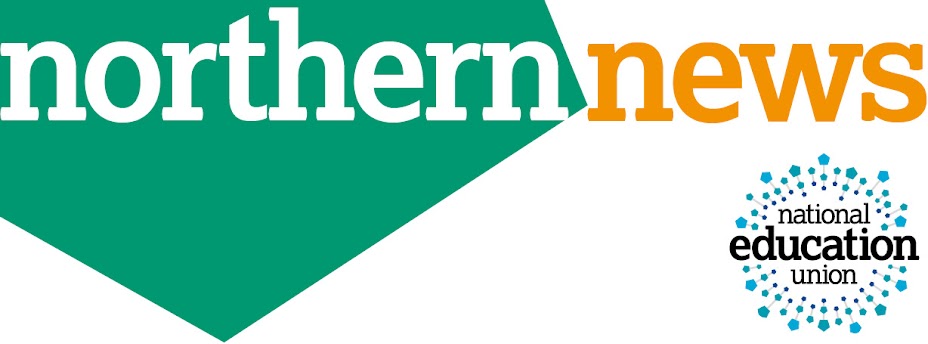You may have read in Educate magazine recently that a growing number of MATS are abolishing performance related pay in respect of teachers. Now Northern Education Trust, who are the largest MAT in the North East and Cumbria have abolished PRP, which NEU feels is a major development in improving the working lives of teachers.
NEU has produced a short 3 minute film in partnership with Northern Education Trust in the region outlining why they have undertook such a decision and the positive impact on NEU members and leaders within the Trust. The film is available here via YouTube. https://www.youtube.com/watch?v=yxPYWHK3NSc&t=5s
In addition to abolishing PRP, Northern Education Trust have also introduced ‘live marking’ and also cut the number of performance management related lesson observations down to one 15 minute observation a year, provided the teacher is not on any kind of support/improvement plan. The move to ‘live marking’ and away from lesson observations and PRP has massively reduced stress and workload for NEU members, and school leaders within NET.
Rather than sitting at home marking books till late in the evening, teachers are able to give instant feedback and respond to what students have done in class. NEU members feel very strongly that the change has improved their workload, wellbeing and their teaching, as well as the learning of pupils. Northern Education Trust is happy because pupils are learning well and making good progress.
Many respected education
professionals now think that PRP will not improve educational standards or
outcomes. OECD research on the impact of PRP in teaching has concluded
that “the overall picture reveals no relationship between average
student performance in a country and the use of performance-based pay schemes.”
A wide range of other research including from the USA and Portugal has
suggested that PRP has no overall impact on achievement or may even reduce
it. Leaders and academics now feel that PRP also undermines and disrupts
effective school improvement. It encourages
teachers to work in isolation, rather than pooling their expertise.
Schools are learning communities - good teachers build their students’
achievement on foundations laid by other teachers and support staff. NEU
views that teachers and support staff work best when they work collaboratively.
PRP often leads to
discriminatory outcomes. The European Commission’s 2014 paper, Tackling the gender pay gap in the European Union recognises
that PRP contributes to unequal pay between men and women – a link also
identified by the Equality and Human Rights Commission (EHRC). Whilst
male and female teachers are both likely to be disadvantaged by PRP, the
evidence suggests that female teachers are even more likely to be disadvantaged
than their male counterparts. It is the NEU view that PRP is an
unnecessary and bureaucratic burden. It ties up school leaders and
governors in lengthy discussions and time-consuming appeals - diverting time away
from the key challenges of securing improvements in teaching and learning.
In a survey of over 25,000
teachers undertaken by the NEU during January/February of this year, we found
that over two-thirds of teachers (70%) have considered quitting the profession
over low pay and lack of pay progression.
This year, for the first time, the school leader associations ASCL and NAHT have both joined NEU in stating their opposition to the performance-based pay progression system and are calling for its removal. NAHT argues, as it has in previous years, that removal of certainty in pay progression is having a “profoundly negative impact” and that the PRP system is having “significant negative consequences” for the profession. ASCL reviews the case against PRP and says that it has now concluded that “the performance related element of the pay system needs to be removed … at the earliest opportunity”.
There is growing evidence of a
general move away from PRP by academy employers, who are not statutorily obliged
to follow the requirements of the STPCD, including major multi academy trusts
(MATs). This confirms the growing attitude among school leaders reflected
in the views of ASCL and NAHT. MATs which have already confirmed that
they are moving away from PRP include EACT, the Northern Education Trust, the
Focus Academy Trust and the Education Alliance.
Having seen others do it, a significant number of other MATs are now moving away from PRP within the North East and Cumbria. If you work in an academy school, speak to your NEU rep, and hold a meeting of NEU members in your schools, and if you wish to see the back of PRP, get in touch with your local branch.
If your school does not have an NEU rep, don’t fear. Hold a meeting to discuss PRP anyway, and why not elect a NEU rep at the same time.
Members join NEU because they feel part of a
collective which works to protect and improve their pay and conditions in their
working lives. This is unlikely to happen without an organised approach for
which we need workplace reps.
Anyone can become a NEU rep. As an education
professional, you’re already doing a job that involves strong organisational
skills, and these skills will undoubtedly help. However, but the most
important thing is that you’re familiar with the landscape of your
workplace. An active local NEU rep can make a real difference in schools
and colleges by helping to:
- protect people’s rights at work
- encourage fairness in the workplace
- promote a healthy and safe work environment
- help people gain access to training and career development
- recruit and inform new members
- improve pay and conditions
NEU will give you all the training and support you need. Contact us if you need more information or assistance.
NEU and a growing number of stakeholders strongly believe that performance-related pay in education has failed. Help us to work with you and other NEU members in your school to eradicate it.






No comments:
Post a Comment